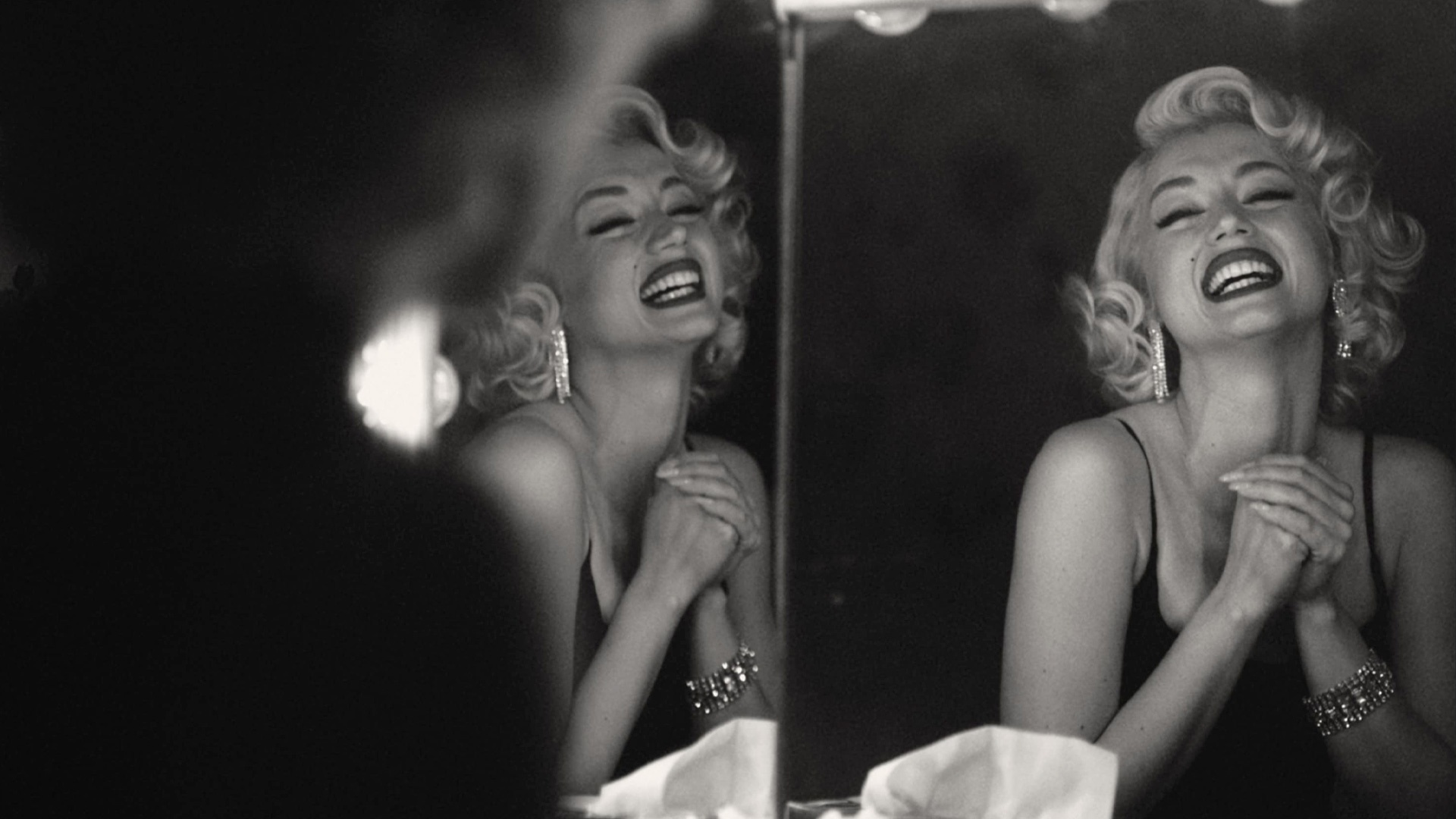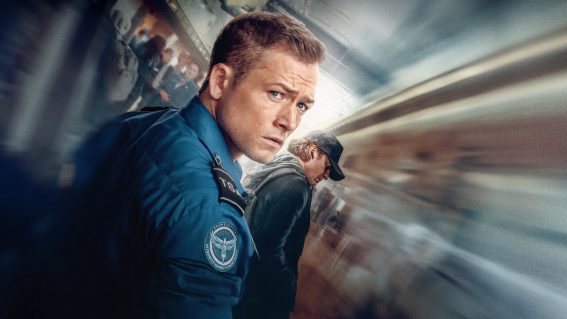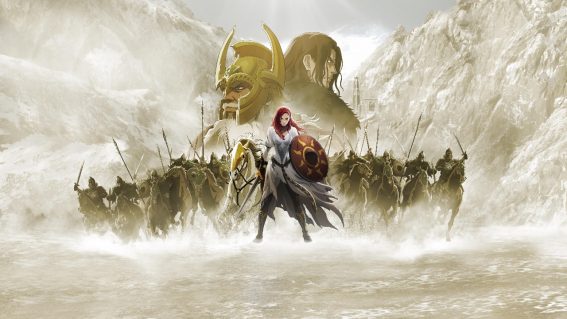Blonde would be the Venice Film Fest winner (if standing ovations decided awards)

This year’s Venice International Film Festival has come to a close, with newly crowned winners, lots of time spent standing and clapping, and apparently a light smattering of news about a new film with Florence Pugh and Harry Styles in it (did I get that right?). Here’s what went down.
The award winners
Defying history as only the second documentary ever to win Venice’s top award, the coveted Golden Lion, Laura Poitras’ All the Beauty and the Bloodshed triumphed over strong dramatic offerings, making it three years in a row that the Golden Lion has been won by films directed by women. Having previously examined Edward Snowden and Julian Assange as doco subjects, here Poitras turns her focus on photographer/activist Nan Goldin and her campaign to hold Purdue Pharma, and its owners the Sackler family, responsible for the opioid epidemic.
In a post-awards press conference, jury chair Julianne Moore described the film as “a beautifully told story about a woman who felt marginalised in her life and managed to create art out of it. And it tells a story not only of her but the story of the opioid crisis in the US and this one woman, how she used her power as an artist to effect some change. It was very complicated, and very human and I think we all responded to that.”
Marking the narrative debut of documentary-maker Alice Diop, Saint Omer won the Silver Lion, as well as earning the award for a debut film. The festival runner-up follows pregnant novelist Rama as she attends the trial of a Sengalese woman accused of leaving her 15-month-old to die on a beach—causing Rama increasing anxiety about her own life and pregnancy.
Writer-director Martin McDonagh returns to familiar turf with The Banshees of Inisherin, re-teaming his In Bruges leads Colin Farrell and Brendan Gleeson for a tale of lifelong friends who find themselves at an impasse. Set on a small island off the west coast of Ireland, Pádraic (Farrell) struggles to repair their relationship after it’s unexpectedly ended by Colm (Gleeson)—with a chilling ultimatum to be left alone. This looks like a return to form for McDonagh after the divisive, if Oscar-winning, Three Billboards Outside Ebbing, Missouri, something confirmed by its Venice wins for best actor (Farrell) and best screenplay (McDonagh).
Getting early buzz at the festival was TÁR from writer-director Todd Field (Little Children). Cate Blanchett leads this nearly three-hour drama as the titular Tár, fictional and self-destructive star of the international classical music scene, through whom Field explores the world of contemporary composition and conducting. Raves for Blanchett’s performance were immediate (not least of all because Blanchett speaks in German, which she apparently didn’t prior to the role) and so, unsurprisingly, TÁR earned Blanchett her second Volpi Cup for Best Actress (after I’m Not There in 2007.)
Bones and All sees another highly-anticipated reteaming, with Call Me By Your Name director Luca Guadagnino getting back together with Timothée Chalamet for a tale of two cannibalistic(!) lovers on a cross-country road trip. Taylor Russell, impressive in 2019’s Waves, is opposite Chalamet with a performance earning her the Marcello Mastroianni Award for an emerging actor or actress. Guadagnino, meanwhile, took home the Silver Lion for Best Director.
A Special Jury Prize was also awarded to No Bears by Iranian filmmaker Jafar Panahi, a film-within-a-film that tracks parallel love stories and continues Panahi’s focus on hardship in Iran, including criticism of its establishment. Panahi was unable to accept his award as he’s currently incarcerated in Iran for protesting police brutality in Iran.
Golden Lion lifetime achievement awards were given to Paul Schrader (his latest, Master Gardener screened at Venice out of competition) and the great Catherine Deneuve, while directing vet Walter Hill (whose Dead for a Dollar also played out of competition) won Cartier Glory to the Filmmaker Award.
Watch Martin Scorsese’s moving tribute to Schrader:
Battle of the standing ovations
Coverage of European film festivals is full of breathless reporting on the duration of standing ovations—it’s quite likely you’ve seen headlines out of Venice quoting the number of minutes audiences clapped away for. Indiewire’s Eric Kohn has made a reasoned plea for everyone to stop counting the minutes of film festival ovations, noting the following:
“Standing ovations can be wondrous experiences in the moment, an immediate and visceral response to the otherwise inexpressible euphoria of an aesthetic encounter. They can also be total bullshit.”
Here at Flicks, we aren’t above a good stat, though—as our downtime poring over Box Office Mojo or (perhaps more embarrassingly) cricket stats on Cricinfo may attest.
Let’s not wonder too much about who times these ovations and how precise the measurements are—ovation times have rolled in from the Venice’s opening night. Alongside a message from Ukraine’s Volodymyr Zelensky (no mention of a standing O), Opening Night featured the world premiere of Noah Baumbach’s Don DeLillo adaptation, apocalyptic black comedy White Noise (starring Adam Driver and Greta Gerwig).
White Noise standing ovation time – three minutes
You’ve probably heard about Olivia Wilde’s Don’t Worry Darling (from what we are picking up, it definitely feels like a movie). By the time its premiere went ahead, gossip and controversy were already in the air—there’s a wrap-up of it here if you are one of the four people on the planet who don’t know about the celeb drama. The internet hadn’t quite exploded with theories about Harry Styles lobbing loogies or throwing goats at Chris Pine when the credits rolled, so these may still play a part in audience difficulty separating the off-screen and on-screen drama. Nevertheless, the Venice crowd rose to their feet and clapped away.
Don’t Worry Darling standing ovation time – five minutes
We’ve already remarked on Cate Blanchett’s award-winning perfomance in TÁR—between this and the film’s subject matter, it’s little surprise this resonated with the Venice audience.
TÁR standing ovation time – six minutes
Darren Aronofsky ‘s latest, The Whale, sees Brendan Fraser play a reclusive English teacher suffering from severe obesity. As his character attempts to reconnect with his estranged teenage daughter for one last chance at redemption, Fraser’s performance won the hearts of the Venice audience, and his response to the standing ovation dares you not to get teary.
The Whale standing ovation time – six minutes (elsewhere reported as seven)
Is a new cinematic universe afoot? Academy Award-winning filmmaker Florian Zeller follows up The Father with prequel The Son. Hugh Jackman and Vanessa Kirby star alongside Oscar winners Anthony Hopkins and Laura Dern, and while the film sounds like it may be a bit of a slog (“slog” actually the word used by Hollywood Reporter alongside “otherwise unrewarding dirge”) there was plenty of praise for Hugh Jackman’s performance.
The Son standing ovation time – ten minutes
Taking home two of the top awards at Venice, if not the top top award, Martin McDonagh’s The Banshees of Inisherin looks like a must-see Irish black comedy. The audience at Venice agreed, giving the film what had been to that point, the longest ovation of the festival.
The Banshees of Inisherin standing ovation time – twelve minutes
And then along came Andrew Dominik’s Blonde. Adapting Joyce Carol Oates’ novel about Marilyn Monroe for Netflix, it’s a fictionalised account of real events, one that was always going to sink or swim based on Ana de Armas’ casting as the lead (a year of voice coaching for the Cuban actor, apprarently). Well, Venice was impressed. Not impressed enough for Blonde to be present when it came to awards, but definitely figuring in both the standing and the clapping departments.
Here’s where it gets tricky though, and where these clap-happy European festivals may want to find an official wristwatch brand partner to officially time the standing ovations. Some major film outlets have one time, another says it’s less. Whichever one is right will determine the film that had this year’s longest standing ovation.
Blonde standing ovation time – fourteen minutes or is it eleven minutes?
Luckily this doesn’t decide awards and is really just a bit of trivia…












